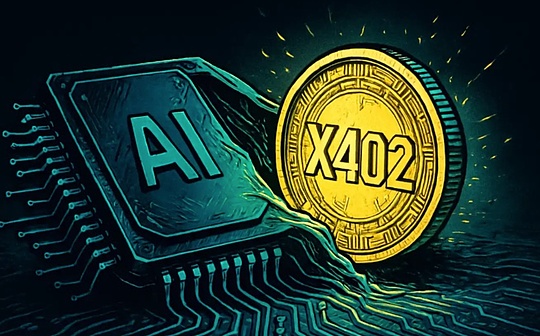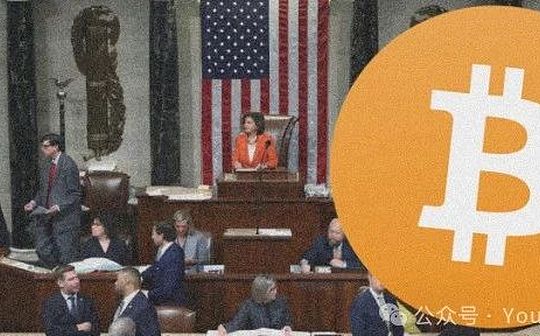
Source: YOUBI CAPITAL
Tl; DR
-
For the first time, the FIT21 Act has established a complete and clear encryption bill for the encryption industry. It is currently passed in the House of Representatives on May 22. If the bill is officially signed into a law, it will have a profound impact on the entire encryption industry.
-
The United States has adopted a joint regulatory model for a long time. The federal regulatory agencies have their own regulatory models to have their own regulatory models to lead to “their own politics.”It cannot be coordinated, so the supervision of the encryption industry in the United States has been in a chaotic and difficult environment.
-
The FIT21 Act is regulated on the regulatory issues of various cores. The bill first specifies that the SEC and CFTC will be the main regulatory agency in the encryption industry.Core regulatory conflict issues.
-
The bill details the registered standards of the encrypted employment in the SEC and CFTC registration standards to provide practitioners with more clear supervision and guidance.At the same time, the bill also provides sound consumer protection measures, such as 12 -month token lock in token issuers to prevent short -term speculators from harming the health of the industry.
-
In the bill, Congress’s attitude towards the encryption industry is very optimistic, and actively encourages American companies to combine blockchain technology in an innovative manner, and at the same time urge SEC and CFTC to study DEFI to help follow -up supervision.
-
If FIT21 can be formally become a law, industry practitioners will have more clear legal guidance to prevent errors, and consumers will also get better protection under this regulatory framework. In the future, the entire market is very likely to be on the consumer side andThe innovation end ushered in high -speed growth, helping the entire industry to accelerate the Wild West, which has been separated from more than ten years, and the cryptocurrency truly enters the mainstream vision.
-
The passing of the FIT21 Act is mainly the result of the Republican Party’s active promotion and the continuous support of the two parties.The bill initially initiated by the Republican committee was initiated by the Republican committee, and almost all Republican members of the House of Republican members voted for votes, and some mild Democratic members also agreed to the bill.In the process, the leader of the encrypted industry also called on legislators to pass FIT21, which shows the importance of the bill.
-
As soon as the election is, the continuous expansion of the encrypted industry has made all the encryption all the important ticket warehouses for the game between the party. Candidates who are optimistic about the encryption industry will be favored by more voters, which also has a very positive impact on the passage of FIT21.
-
FIT21 has not yet signed the law. The next step will be transferred to the Senate for voting, and the text will be signed by the president.Patrick Mchenry said at the CoinDesk Consensus conference a few weeks ago that the bill is expected to be officially signed in the law within next year.
On May 22, local time in the United States, the FIT21 Act led by the Republican Party was passed in the U.S. House of Representatives with 279 votes and 136 votes.Congress has achieved important legislative achievements. Its influence has already touched the highest center of power in the United States. As the first bill in the encryption industry to establish a complete regulatory system, FIT21 is also the first victory to help the crypto industry out of the western world.
1 The status quo of the U.S. encryption industry supervision
Many businesses have been derived from the development of the encryption industry, such as centralized exchanges, mining, pledge services, and other encryption business supported by smart contracts.At present, the United States adopts the model of joint supervision for cryptocurrenciesDifferent federal institutions can supervise the business within its jurisdiction. Important federal institutions such as SEC (US Securities and Exchange Commission), CFTC (American Commodity Futures Commission), FINCEN (US Financial Criminal Enforcement Agency) and OFAC (Foreign asset control offices) have participated in the supervision and crackdown on illegal behaviors of the encryption industry. These different federal institutions have a different degree of impact on the industry.
1.1 Regulatory agency “respectively”
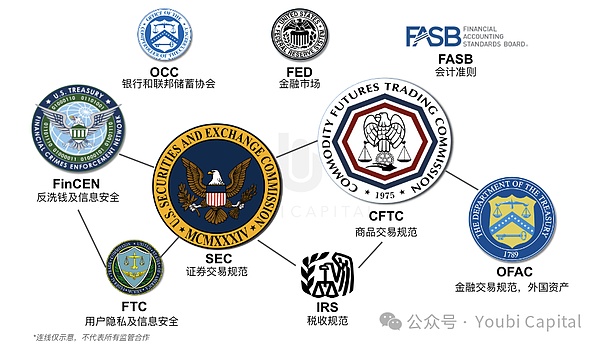
Figure 1: The current encrypted industry supervision map
Because the encrypted industry does not have a systematic regulatory framework and adopts a joint supervision model, it is very easy to lead to the supervision pattern of its own claims and “hundreds of claims” in various law enforcement agencies.
The SEC plays a very important role in the supervision of the encryption industry. Its main responsibility is to define whether the different encrypted asset entities are securities, Mainly judge whether it belongs to its regulatory frameworkAnd in order to better help the subject judge whether the digital assets they issued are “investment contracts”, they should be included in “securities”. SEC released the guidance of “whether virtual assets belong to the analysis of investment contracts” in 2019Files, although the document does not have formal legal benefits, provides guiding suggestions for employees.
CFTC’s attitude towards digital assets clearly stated on the official website that virtual assets, including virtual assets, including virtual assetsAll virtual currencies are commodities, so CFTC has the power to supervise the manipulation and fraud in the digital asset futures market, Subsequently, the “Digital Commodity Consumer Protection Law”, which passed the revised “Digital Commodity Consumer Protection Law” in 2022, gave CFTC’s exclusive jurisdiction over the “digital commodity” transactions and platforms to authorize them to register and regulate the spot exchangeFollow the same rules.
FINCEN Financial Crime Law Enforcement Bureau is mainly engaged in anti -money laundering, cracking down on terrorist finance, and KYC.Fincen’s main rights are granted by the Bank Secret Law (BSA), which clearly stipulates that if the encrypted business involves the production transfer and transactions of virtual currencies, BSA must be controlled.2013,FINCEN released a management framework for virtual currency, And determine the encrypted asset trading service provider for the monetary service enterprise(MONEY Service Business, MSB),This change is determined that virtual assets are currency, Cryptocurrency’s trading platform must obtain FINCEN permission and implementAnti -money laundering mechanismEssence
OFAC Foreign Asset Control Office is mainly responsible for supervising all financial transactions in the United StatesAnd sanction any individual, organization or country that constitutes a threat.With the rise of digital assets,Due to its technical characteristics, it provides new types of evasion detection methods for some trading participantsIt has increased the difficulty of enforcement of OFAC.Different from the SEC and CFTC, OFAC’s main law enforcement scope is mainly concentrated inUsers handling transactions in the sanctions areas and providing washing for illegal activities overseas in the United StatesMoney assistance.
This can be seen,Every law enforcement agency has its own supervision model and attitude towards the encryption industryIt is inevitable that the supervision of the encrypted industry is too scattered, which will inevitably cause some regulatory conflicts that make the encrypted practitioners unable to follow legal practice, and it is easy to face unreasonable lawsuits and affect the development of the industry.
The historical law enforcement actions of each regulatory agency can be refer to appendix.
1.2 SEC “intimidation” law enforcement law enforcement
In addition to the jurisdiction assigned by the US Congress, the SEC can define whether the cryptocurrency is “securities” in the way of “regulation by enforcement”. Because the jurisprudence of the US court can be used as an important basis for jurisdiction,The SEC will file a civil lawsuit or administrative penalties to the founders, executives, etc., Based on the court’s judgment to determine its jurisdiction over the encrypted assetFor example, in December 2020, SEC filed a civil lawsuit against Ripple, saying that RIPPLE did not register the issuance of XRP and sales to SEC, thereby violating the relevant provisions of securities law.At the same time, SEC’s lawsuits not only target the qualitative issues of cryptocurrencies,It will also deal with the business problems of some encrypted enterprisesFor example, in June 2023, the SEC filed a lawsuit against Coinbase, accusing him of illegally operating crypto asset securities business illegally without registered, and the allegations of SEC basicly supported by the court in the end, it can be seen that it can be seen thatThe SEC has continuously expanded its regulatory scope through administrative channels, and due to the blurring of the regulatory framework of the encryption industry, SEC’s lawsuits are very easy to cause “intimidation” law enforcementIt is difficult for employees to protect themselves based on reliable bills, which have a serious impact on the development and innovation of crypto enterprises.
1.3 Regulatory conflict
The current fragmented regulatory situation is difficult to avoid law enforcement conflicts caused by regulatory agencies due to unclear jurisdiction. Among them, the most intense conflict belongs to SEC and CTFC.Because these two regulatory agencies are targeting the core asset classification of the encryption industry, SEC tends to think that most digital assets can be identified as securities, because these assets can easily pass Hawiti’s test, while CFTC depends on most cryptocurrencies as products, which will make SEC and CFTCs on some tokens on some tokensDuring the supervision, the issue of jurisdiction over jurisdiction is generated, and it is difficult to clear the division of supervision power without a unified regulatory framework.In addition, the two also have a overlapping problem about the supervision of encrypted enterprises. For example, in the incident of 2023 Binance, SEC and CFTC have initiated a lawsuit against Binance, and the two allegations of Binance have the contents of Binance.In a large number of similarities, the overlapping law enforcement may lead to unnecessary fines, so when the supervision is unclear, the overlapping regulatory overlap will also have a great impact on the industry.
So for a long time,The encryption industry in the United States has always been in a confusing and difficult regulatory environment. Because there is no perfect legal path, Each federal agency cannot be coordinated in the claims of jurisdictionThe regulatory conflict caused by it had a extremely unstable impact on the development of the industry. At the same time, when the regulatory framework was lacking, the crypto enterprises were difficult to protect their rights and interests in the face of some law enforcement agencies.The industry is flexible and innovated and developed in the United States, and the FIT21 Act is the beginning of changing the current chaotic pattern of supervision.
2 Detailed explanation of the FIT21 Act
FIT21 is called the 21st Century Financial Innovation and Technical Act(Financial Inovation and Technology for 21STRY), that is, H.R. 4763.Established a clearer and comprehensive legal regulatory framework for the encryption industryAt the same time, it also includes a series of regulations on consumer protection measures in the encrypted market and a series of regulations on solving the unique structural problems of virtual assets. The clarity and comprehensiveness of the bill has made it the most important bill in the encryption industry so far.
FIT21 was first from July 20, 2023Glenn Thompson Chairman of the House of Representatives Agricultural Committee, Patrick Mchenry, Chairman of the House Financial Services Committee, Tom Emmer, a party disciplinary committee member, and three other members of the House of RepresentativesCo -initiated, the bill is in the review stage of the committee,Pass the two -party voting approvalReview of the House of Representatives Agricultural CommitteeAt the same time, the House of Representatives’ Financial Service Committee also passed the FIT21 Act, which won the support of all Republicans and six Democratic members on the committee. It can be seen that the launch of the FIT21 Act is not only the result of the joint efforts of the two House Committee committees, but also the Republican and the Republican Party and the Republican Party andThe common support of the Democratic Party, and it is worth mentioning, CFTC and SEC are supervised by the Agricultural Commission and financial service members, respectively.Important participant of the FIT21 Act.

Figure 2: FIT21 initiator
2.1 Course content
The FIT21 Act is 253 pages. The bill formulates preliminary regulatory regulations from 6 aspects, including digital asset definition and registration, SEC and CFTC power division, and the innovation guidance of the encrypted industry. The core content of each part will be summarized and analyzed.
Part 1: Division of asset definitions and regulatory agency responsibilities
In the first part of the bill, FIT21 refers to three different securities and commodity trading bills. It defines the term “blockchain protocol”, “decentralized governance system” and “decentralized trading system” for encrypted assetsThen the most important content isFor the definition of “digital assets”, the “digital asset” in the bill is defined as the main body of the “digital asset” as the main bodyAnd this value subject can be held or transferred without any intermediary, and all transactions will be recorded on a distributed book -based book book protected by the encryption system. “In addition, another definition is worth mentioning“Digital Commodity”, the original definition is slightly complicated but can be simply understood as “any digital assets obtained through legal issuance channels and purchased on the exchange”, This definition does not change the definition of “digital assets” from the essence, so digital assets are regarded as commodities by default, butFIT21 also clarifies CFTC and SEC as the main regulatory subject for encrypted assets, Need to discuss and further clarify all the terms related to encrypted assets, soDefinition follow -up will be further improvedEssence
What is more important in this part is clearly clearing the classification of digital currencies.The bill stipulates that if a blockchain running digital assets is functional (the functional system) and is decentralized, then the digital asset will be identified as a commodity regulatory by CFTC. If the digital assetThe definition of decentralization is not met, it will be regarded as the securities supervised by the SECThe bill defines the decentralized system asNo individual has unilateral power to control the blockchain, and no issuer has 20% or more digital asset control or voting rights of digital assets or digital assetsEssenceThis classification standard is clearly significant for encrypted assets. This standard clearly clarifies the regulatory category of SEC and CFTC, which can greatly avoid the confusion and conflict of supervision.
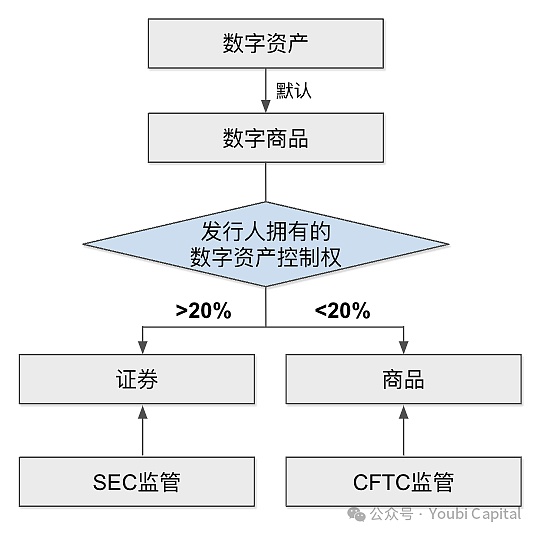
Figure 3: asset definition and supervision
Part 2: Clear of investment contract assets
Due to the different structure and nature of encrypted assets, FIT21 has been amended to the Federal Securities -related bills. It is mainly aimed at the definition and regulations of the “Investment Contract Asset”. It aims to provide sufficient clarity for some parts of the market assets in the marketAnd clarity.
The bill mainly revised the Securities Act of 1933 in 1933, and it was amended.The first revision is to clearly exclude the “investment contract asset” in the definition of “securities”, Make “investment contract assets” a independent definition, Give an intermediate definition of encrypted assets, if an assetIt will not be defined as a traditional sense of securities in the traditional sense of investment contractEssenceThe second revision of the subsequent item is to define the “investment contract asset” and supplement:
-
Assets must be a transferable digital value subject recorded on the public distributed ledger that can be protected through the encryption system without an intermediary.
-
Assets must be sold or transferred in other ways, or intended to be sold or transferred in other ways as part of the investment contract.
-
Assets are not considered securities based on the 1933 securities law
In the guidance file released by the SEC before,If an asset is identified as a “investment contract” if it passed the Hawito test, it will be classified as securitiesThen it will also be regarded as securities supervised by the SEC.But due to the unique structural nature of encrypted assets,Digital assets may be considered that the goods can also be sold as part of the investment contract. It is not a mapping relationship as an investment contract and a securities.Traditional asset categories are not exactly applicable to encryption supervision.As a result, the FIT21 Act clearly excludes “investment contract assets” in the definition of “securities”.Provide greater regulatory flexibility for cryptocurrencies, No longer pass a single “Haowei Test” standard to determine whether the asset -changing assets are subordinate securities, which helps the qualitative specifications of asset encryption assets.And improve the classification fault tolerance to comply with the unique structure of cryptocurrencies to prevent unreasonable supervision by being directly identified as securities.
Secondly, the peeling of “investment contract assets” in securities also solves the problem of regulatory division of the same digital assets.For example, in the Ripple case mentioned above, the court determined that the financing of the XRP private equity wheel for the institutional professional investors complied with the three standards of Haowei’s tests, constituing the “securities” sale, and the offering of other XRP channels did not constitute “securities”.Sales,In this way, the XRP, which is released from different channels, has a condition of multi -party supervision and fuzzy supervision.EssenceIf the FIT21 bill is passed, the regulatory agency corresponding to the “investment contract assets” will be further clarified in the future, and the “investment contract assets” will be further clarified.Clarify institutional supervision responsibilities, improve the efficiency of regulatory supervision, reduce the problem of confusion of regulatory duties in different issuance or release stages of the same digital assets, and bring greater flexibility to market participants.
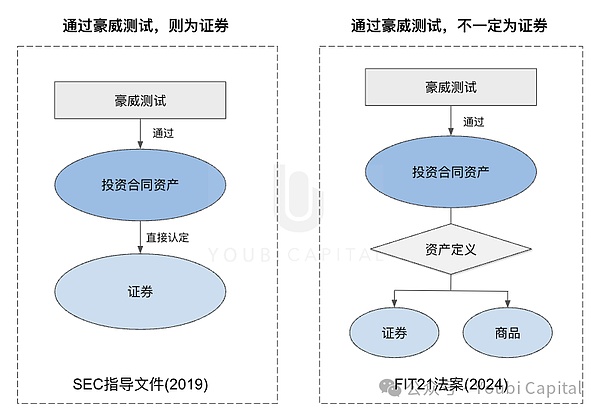
Figure 4: Haowei’s test judgment logic
Part 3: Digital assets issuance registration exemption and locking requirements
Regarding the issue of digital assets, the FIT21 Act has also explained from the aspects of sale exemption standards, information disclosure requirements, and asset certification.In the exemption standard, the bill mainly stipulatesIf the total value of digital asset sale does not exceed $ 75,000,000, and any buyer shall not have 10%of the amount of the asset offer during the release stage, then the transaction of the digital asset issuance will be exempted from registering for registration.EssenceThe subsequent bills are also a series of basic requirements for the release of digital assets and strengthenedRegulations on information disclosureFor example, the issuer needs to provide source code, the history of the token trading, and the token economy. At present, the overall situation of industry asset issuance is more in line with the requirements of information disclosure, and the disclosure of this information will further protect consumers’ rights and interests.
In addition, it is more important that the bill also requires the issuer’s lock -up period for the issuer.The bill stipulates that the relevant entities of any token issuer need to lock the token after December to sellThis rigid regulation can suppress some practitioners’ short -term speculative behaviors, prevent market heat and protect consumers. At the same time, it promotes long -term innovation of blockchain products, and helps the industry retain innovatives and long -termists.
Part 4 and Part 5: SEC and CFTC’s regulatory scope of encrypted enterprises
The fourth and fifth parts in the bill mainly specify the regulatory authority of the SEC and CFTC on digital assets and the requirements for registration of related employees.The bill clearly specifies the trading platform of cryptocurrencies, and brokers (Broker) and dealer will be supervised by law enforcement agencies,,If the business subject involves securities or crypto assets of securities or commodities, it is necessary to submit a registration application to the SEC and CFTC respectivelyThe bill allows the same practitioner to register at the same time on SEC and CFTC.In addition, the focus of SEC and CFTC supervision is slightly different.The bill clearly stipulates that the needs of crypto asset trading platformsProvide related transaction information and records to the SECAnd you need to review the security and integrity of the trading system,CFTC side sideThe review of the custody of customer fundsAt the same time, CFTC will also supervise the Commodity Pool Operator (product fund manager) and the situation of Commodity Traing Advisor.
The current regulations show that the DEFI activity is not restricted by the bill, and subsequent research and detailed regulatory rules will be jointly studied and formulated by SEC and CFTC.
Part 6: Congress attitude and technological innovation supervision
In the last part of the bill, the Congress’s views and opinions on encryption technology were summarized first.Congress first affirmed the entrepreneurs and innovators of the encrypted industry to build and deploy the next generation of the Internet, and believe that the digital asset ecosystem has the potential to enhance the efficiency of social activities management, resource allocation, and decision -making.The United States should try to discover the potential of the encrypted industry and the potential opportunities it bringsAmerican companies should try to explore new types of user participation structures in an innovative manner.While affirming the innovation of encryption assets, Congress also shows that it is necessary to cooperate with practitioners in the encrypted industry to establish the basic framework for blockchain technology risks and investor protection.On the whole, Congress’s attitude towards digital assets and the encryption industry is more optimistic as a wholeWhile supporting the development of the industry, it also hopes that there are systematic frameworks to maximize the unique innovation that can be maximized.
In order to further cope with the development of blockchain technology and the impact of digital assets,The bill proposes to expand the SEC’s Innovation and Financial Technology Strategy Center (FinHUB) and CFTC Laboratory (LABCFTC) for the research responsibilities of the encryption industry to formulate a policy and establish a supervision system for the financial technology assistance committee to formulate a policy and establish a supervision system.EssenceIn addition, the bill also proposes to establish a digital asset consulting committee jointly jointly and SEC. This committee will conduct research on related issues of digital assets.Assets are supervised, and the committee will also appoint at least 20 employees to assist in to strengthen close contact with the industry.
This part of the bill also proposes research on DEFI and NFTThe bill requires that the SEC and CFTC should jointly conduct in -depth research on the use, scale and its advantages and disadvantages of the DEFI protocol, its advantages and disadvantages, and the potential risks of the financial market stability or improvement.Responsible, mainly exploring the actual use of NFT and the integration of traditional markets.
2.2 Industry meaning
The FIT21 Act passed the House of Representatives an extremely important moment in the encryption industry, marking that the encrypted industry has achieved significant victory and bill achievements in the US Congress. The increasing influence has already touched the highest power center in the United States.
In the above we mentioned the split of the regulatory system of the US encryption industry, different law enforcement agencies have their own claims that the establishment of a bill for the establishment of an encrypted assets or a guiding document. The fragmented supervision not only leads to conflicts in jurisdiction, unhealthy law enforcement, but also constantly law enforcement law enforcement law enforcement.The lawsuit is a great challenge for the sustainability and innovation of the industry. At the same time, the practitioners cannot rely on the applicable legal framework to regulate or resist in advance.And the promotion of the FIT21 bill is changing all this!
first,FIT21 is the first bill in the history of the encryption industry to provide a complete regulatory framework for the industry.The clear regulations in the bill are the core issues facing the encryption industry, such as the billThe first clearly shows that the SEC and CFTC are the primary regulatory agencies for the encryption industryAnd for the first timeIt has stipulated whether cryptocurrencies are the classification of securities or commoditiesThen the qualitative division of different tokens will not be held by SEC and CTFC.
at the same time,The bill also provides sound consumer protection measuresAnd clarifying the registration regulations of crypto enterprises, the issuer’s token locking and strengthening information disclosure also for further protection of consumers, promote the health of the entire market, and prevent bad practitioners from continuing to release products that endanger the rights of consumers through regulatory gaps.And token.
In addition, China ’s attitude towards cryptocurrencies is also very optimistic. It encourages innovation while promoting SEC and CFTC to jointly study DEFI to further supervise it.significance.
If FIT21 can be formally become a law,Industry practitioners will have a clearer legal guidance to prevent errors from practical practice, It has a positive role in the development and innovation of crypto enterprises, and consumers will also get better protection under this regulatory framework, plus the continuous expansion of cryptocurrencies,In the future, the entire market is very likely to usher in high -speed growth on the consumer side and innovation end, Make the cryptocurrency really enter the mainstream vision.
The big tree is towering, and the roots are deep.FIT21 is precisely the first step. It can be used as the cornerstone for the more comprehensive legislation in the future. It continues to lay the way up the supervisor’s innovation for the innovation of the encrypted industry to help the entire industry accelerate the Wild West that has been separated from more than ten years.It affects the future of the entire industry.
3 FIT21 Important Push
3.1 Republican leadership, the two parties continue to support
From a political level,The Republican Party plays a vital role as the main promoterEssenceIn the early days of the bill, the Agricultural Committee of the House of Representatives and the Financial Services Committee jointly passed support.At the same time, the party structure of these two committees is dominated by the Republican Party, During the number of 28 and 29 Republican members, the number of Republican councilors, so during the early stage of the committee’s review stage, the Republican Party can use the advantages of the number of people to pass the bill and submit it to the House of Representatives to vote.But it is worth mentioning that during the voting stage of the Agricultural Committee, all the Democratic members of the Democratic Party also voted for votes, which means that the bill was supported by the two parties in the early stageEssenceThe FIT21 Act finally received support from the Republican 208 votes and 71 votes of the Democratic Party in the House of Representatives. From the results, it can also be seen intuitively that the Republican support for the bill and the attitude of some Democratic members of the Democratic Party, combined with Trump recentlyPositive attitude towards cryptocurrencies,The entire Republican Party has played a great role in promoting the encryption industry.
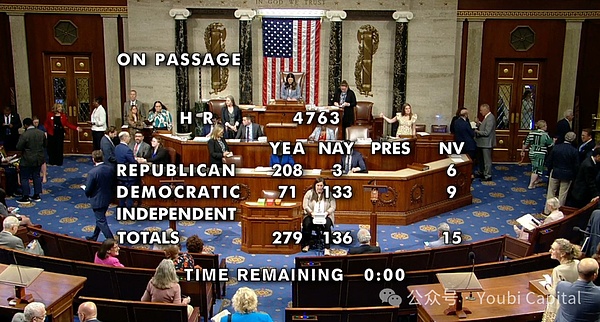
Figure 5: FIT21 Act voting situation
3.2 Pay attention to practitioners in the encryption industry
For this important bill that affects the blockchain industry, employees and enterprises in the encryption industry attach great importance to it.May 16th,The Crypto Countcil for Innovation (CCI) is represented and united with 60 companies to publish a support letter called for promotion of the FIT21 Act.This letter combined with an important industry participants such as A16Z, Coinbase, Circle, Block, etc., the letter expressed the importance of FIT21 to the encryption industry and the regulatory backwardness of the United States, and urged legislators to support H.R. 4763 to helpThe encryption industry has established a clear regulatory environment.
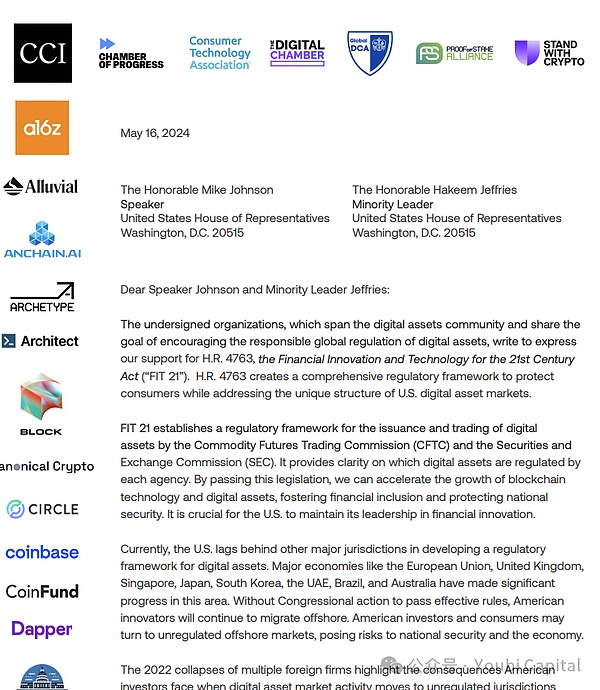
Figure 6: Joint call for letters
3.3 The influence of the encryption industry continues to expand
In addition to the support of the party and the employees, the influence of the encrypted industry and the political situation in the United States have also become an important promotion factor that cannot be ignored.According to the research report of non -profit organization Stand with Crypto, showing thatThere are currently 52 million people in the United States that hold virtual currencies, while in another survey, about 20%of U.S. citizens holdAlthough the data is biased, it can be seen as a wholeDigital currency is no longer a niche group, Its influence is gradually expanding, and the encryption industryIt is expected to create 4 million jobs before 2030, Its growth potential has a positive impact on the US employment marketAt presentThe US encryption regulatory system is not optimistic, Lags behind 83%of the G20 countries, and there are risks in millions of positions in the blockchain industry. At the same time, there are a large number of practitioners who leave the United States because of unclear supervision. Driven by various factors, the legislature agencies will beI have to pay attention to the supervision of the encryption industry, so the FIT21 bill is particularly important.
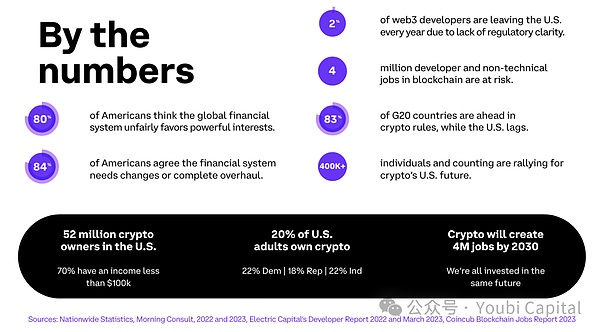
Figure 7: Stand with Crypto Public Opinion Survey
3.4 Elections are imminent, cryptocurrencies have become important political chips
At the same time, the current US election is at a critical stage, and the influence of the continuous expansion of the encryption industryMake the encrypted group gradually become an important ticket warehouse for the party gameAccording to the gray degree, DCG and Paradigm’s multiple polls showed thatAt least 20%of voters hold and follow the cryptocurrency industry, Such a group of groups cannot be ignored, and there are a certain number of critical swing states in multiple key swing states.Voters believe that cryptocurrencies are important issues of the election, so the decision -making attitude towards cryptocurrencies between political parties is an extremely important political chipThis has an extremely important impact on the relevant encryption bill, so the political game between the party may be extremely beneficial to the promotion of the FIT21 Act.
-
The public opinion survey commissioned by Cryptocurrency Investment Corporation Paradigm was released on Thursday (March 14), showing that 20%of the United States hold cryptocurrencies.
-
Harris polls funded by Bitcoin ETF issued by GrayScale show that American voters’ interest in cryptocurrencies is rising. 33% of people said that they will consider political candidates for cryptocurrencies before making vote decisions.position
-
A polls released by the blockchain venture capital company Digital Currency Group (DCG) show that in the upcoming American election, more than 20% of voters in multiple key states believe that cryptocurrencies are a key issue.
-
Gray Police Survey Report: Nearly half of the American voters expect some of their investment portfolios to include cryptocurrencies
4 Next
Council for review → Voting of the two hospitals → President signature
FIT21 has now voted in the House of Representatives and will vote in the Senate in the next step.The US legislative process can be simply divided into three stages. The committee’s review stage, the voting phase of the two houses of the Congress, and the final unified bill were signed by the president.For details, the draft legislative case is first proposed and reviewed by the members of the committee. After the committee reviews it, submitted to the parliament to vote for voting. Then the bill needs to be submitted to another parliament for review. The current FIT21 Act is inThe House of Representatives was approved by voting, and the FIT21 will be transferred to the Senate, but the transfer process will be a long and complicated process.Fit21 currently faces two situations in the SenateThe first is the SenateMay decideRe -draft the relevant billIt means that it is necessary to re -submit it to the Senate during the review stage of the Senate Committee, even ifEnter the Senate directly to voteFIT21 also faces the amendments and additions and deletions of the bill, and then returned to the House of Representatives to decide and unified the text.According to the previous report of Coindesk,The Senate is likely to draft the corresponding bill of FIT21 againThis means that the FIT21 distance may be officially passed for a while.During the last presidential signing stage, even if the bill was rejected, the two courts could be overwhelmed by two -thirds of the approval votes to overturn the resolution, so the FIT21 Act will have a lot of fault tolerance.At present, the White House has no threat to Fit21It means that Fit21 has received the attention of the White House and hopes to participate in the formulation of policy.
FIT21’s joint sponsor Patrick Mchenry said at the CoinDesk Consensus a few weeks agoThe bill is expected to be officially signed within next yearAlthough the influence of the encryption industry has continued to expand and as the main battlefield of the recent US elections, the possibility of FIT21 is very likely, but at presentThe US government’s attitude towards cryptocurrencies is still more vagueFor example, Biden recently rejected the resolution of overthrowing SEC encryption asset accounting standard SAB 121 but has a relatively neutral attitude towards FIT21. At the same time, because of the US election,The FIT21 Act will be transferred to the next Congress, Ruo Trump won in the election,Whether it will continue to support the implementation of the encryption bill is also an unknown, But in general, cryptocurrencies are currently optimistic about the prospects of FIT21 as an important political chip.
appendix
SEC (Securities Exchange Commission)
-
In December 2020, SEC filed a civil lawsuit against Ripple, saying that Ripple did not register the issuance of XRP and sales from SEC, thereby violating the relevant provisions of the securities law.The three standards of the prestige test constitute the sale of “securities”, and the offering of other XRP channels does not constitute the “securities” sale.At present, SEC has appealed to the case.
-
In June 2023, SEC filed a lawsuit against Coinbase, accusing him of illegally operating crypto asset securities business without registered, and the court’s final ruling supported most of SEC’s allegations.
-
In November 2023, SEC filed a lawsuit against Kraken, accusing them illegally promoting the trading of crypto asset securities, did not register a variety of businesses involved in the committee, and 11 unregistered securities in the merchant. In response to this lawsuit, state officials accused SEC allegations of SECVietnamese power believes that SEC is expanding the definition of “investment contracts” and automatically attributed crypto assets as securities, and then Kraken fined $ 30 million.
-
The scope of SEC’s jurisdiction is not limited to the United States. For the GRAM tokens issued by Telegram, due to its issuing tokens to American citizens, SEC has adopted law enforcement measures to Telegram on the grounds of protecting the interests of American investors, although the subject of Telegram registered in the UK in the UKIn the end, Telegram returned the funds raised and fined $ 18.5 million
CFTC (American Commodity Futures Trading Commission)
-
On September 14, 2021, CFTC filed a lawsuit against the Tether and Bitfinex Exchange, accusing the two companies of fabricating transaction volume and misappropriation of customer funds and suspected of violating anti -money laundering laws. In the end, the two parties reached a settlement in October 2022. Tether fined 41 millionUS dollar, Bitfinex was fined 1.5 million.
-
In October 2020, CFTC, FBI, and the U.S. Department of Justice (Doj) jointly sued Bitmex and its founder executives. CFTC claimed that Bitmex did not register with CFTC as commodity futures dealers.Essence
FINCEN (Financial Crime Law Enforcement Bureau)
-
In 2015, FINCEN imposed an administrative penalty of $ 700,000 because Ripple LBAS Inc. did not apply for MSB license and failed to establish a corresponding anti -money laundering mechanism.
-
In 2020, FINCEN made a civil fine of $ 60 million in developers and managers of Helix and Coin Cinja mixed coins. FINCEN accused Coin Ninja violated BSA -related anti -money laundering.
-
In 2023, institutions such as FINCEN and OFAC prosecuted the Angle, accusing them of violating BAS and obligation to obey AML
OFAC (Foreign Asset Control Office)
-
In December 2020, the OFAC and Bitcoin trading platform BitGo reached a settlement on the allegations against the Crimean region, Iran, Syria, and Cuba during the period from 2015 to 2019. Bitgo agreed to pay a fine of $ 98,830
-
The subsequent OFAC also litigated Kraken, CoinList, and Binance with similar allegations to “deal with transactions for users in sanctioned areas”, and eventually resolved with fines and reconciliation.
FTC (Federal Trade Commission)
The main responsibility for FTC is responsible for consumers’ privacy protection and information security.In July 2023, FTC filed a lawsuit against related companies and executives such as CELSIUS Network, saying that CELSIUS deceived consumers to transfer their assets to the platform and lied that the deposit was safe, but in fact, user assets have been misappropriated, and CELSIUS cannot provide enough provisionIn the end, FTC reached a reconciliation with Celsius to permanently prohibit the platform from dealing with consumer assets.
Reference information
https://www.conress.gov/bill/118th-congress/house-bill/4763/text
https://cryptoforinnovation.org/fit21- coalition-support- medter/
https://www.coindesk.com/opinion/2024/06/05/whats-sxt-fit21-a-consensus-2024- recap/
https://www.standwithcrypto.org/docs/fit21_one_pager_2.pdf
https://www.deheheng.com/content/31030.html








